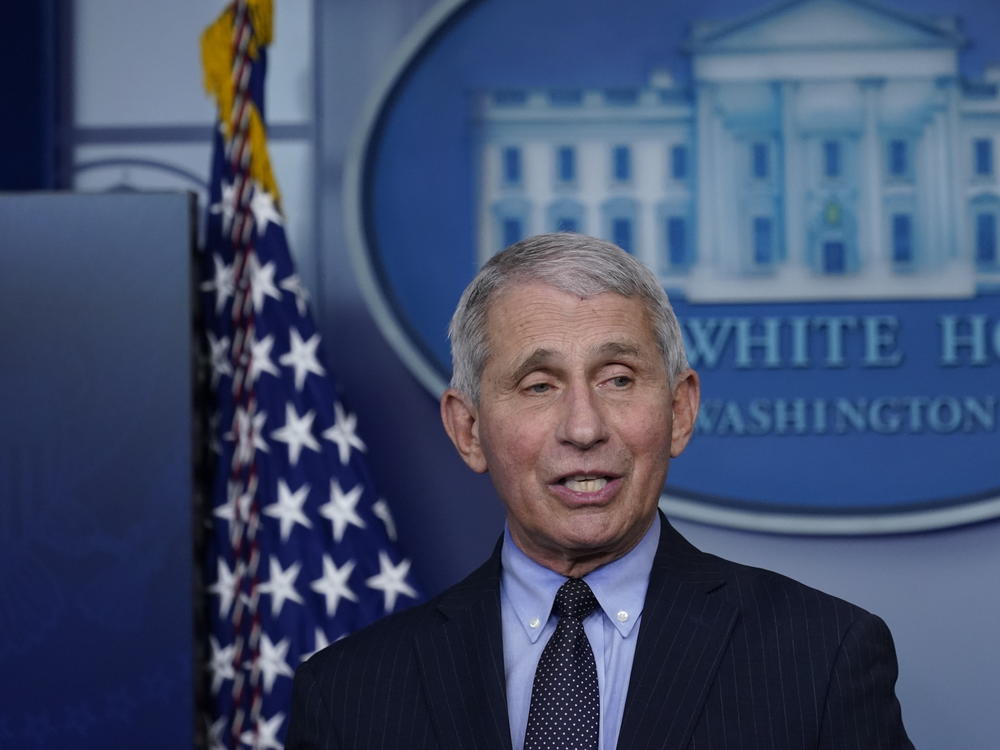Section Branding
Header Content
Fauci Awarded $1 Million Israeli Prize For 'Speaking Truth To Power' Amid Pandemic
Primary Content
America's top infectious disease official Dr. Anthony Fauci received a prestigious $1 million Israeli prize Monday, along with six other researchers who shared two additional $1 million prizes for their contributions to health and medicine.
The Dan David Prize, affiliated with Tel Aviv University, said it honored Fauci for his career in public health and "speaking truth to power" during the politicized COVID-19 crisis.
Fauci "is the consummate model of leadership and impact in public health," the awards committee said in a statement.
The award sets aside 10% of the prize money for academic scholarships in each winner's field. Fauci gets to determine the nature of the scholarships.
Fauci has been director of the National Institute of Allergy and Infectious Diseases at the U.S. National Institutes of Health since 1984, advising seven presidents on domestic and global health issues.
His research into HIV helped develop treatments to enable carriers of the virus to live long lives. In 2003, he helped launch the President's Emergency Plan for AIDS Relief under the George W. Bush administration, which the NIH credits with saving millions of lives in the developing world.
Fauci became a household name in the U.S. after appearing in televised presidential briefings on the coronavirus. He was a trusted authority for the public on preventive measures against COVID-19, even as former President Donald Trump downplayed the virus and blocked Fauci from appearing on several television programs. Trump called Fauci part of a group of "idiots" and suggested he might fire him after the presidential election, which Trump lost.
"As the COVID-19 pandemic unraveled, (Fauci) leveraged his considerable communication skills to address people gripped by fear and anxiety and worked relentlessly to inform individuals in the United States and elsewhere about the public health measures essential for containing the pandemic's spread," the awards committee said. "In addition, he has been widely praised for his courage in speaking truth to power in a highly charged political environment."
The Dan David Prize, established by the late Italian Israeli philanthropist Dan David, annually awards three prizes of $1 million honoring contributions to knowledge of the past, contributions to society in the present and advances for the future.
This year the three awards focused on health and medicine.
Historians Alison Bashford of the University of New South Wales in Sydney, Katharine Park of Harvard University and Keith Wailoo of Princeton University are sharing a $1 million prize for studying the history of health and medicine. Zelig Eshhar of Israel's Weizmann Institute of Science, Carl June of the University of Pennsylvania and Steven Rosenberg of the NIH National Cancer Institute are sharing a $1 million prize for pioneering anti-cancer immunotherapy.
Previous laureates include filmmakers Ethan and Joel Cohen, novelist Margaret Atwood, former Vice President Al Gore and cellist Yo Yo Ma.
Copyright 2021 NPR. To see more, visit https://www.npr.org.

